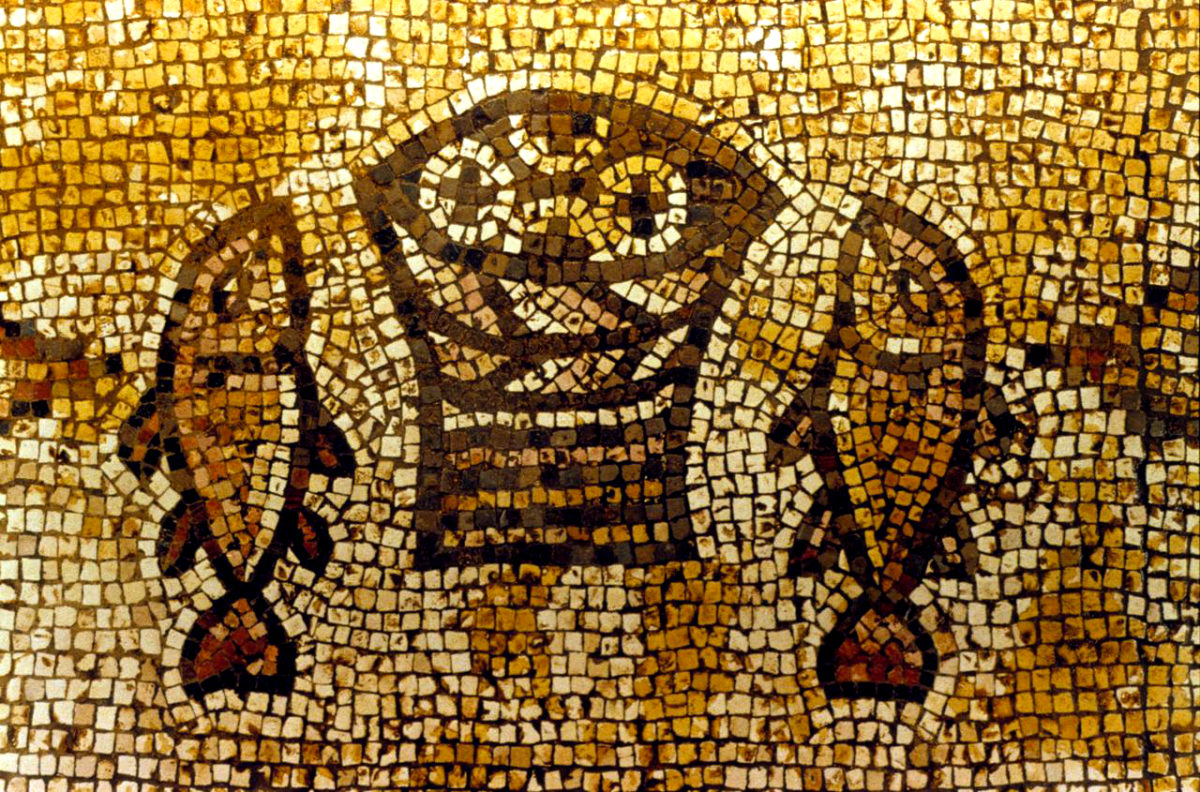What Jesus asks of us is impossible. We don’t have the energy or the resources in ourselves to do what he commands. He puts us in some difficult situations. On the one side, we have a starving crowd of thousands, and on the other side we have Jesus telling us to feed them. There we are caught right in between, feeling the pressure.
When Jesus commanded the disciples to feed the crowd in Luke 9.13, he knew that they didn’t have the resources to do so, yet he commanded them to do it anyway. In that moment between command and supply, the disciples had to have experienced a frazzled moment. Jesus asked them to do the impossible, and before he showed them that he would supply what he commanded, they were probably bewildered and stressed.
We disciples today are many times in that in-between space between command and supply; that place of tension as we wait on the Lord Jesus to give what he commands. We can’t afford these children. We can’t handle the responsibilities of shaping these lives day in and day out. The energy it takes is well beyond what we have. We can’t be patient and wait for God to vindicate us in that relationship at work. We have been unjustly accused and maligned, and Jesus has commanded us not to respond in kind. But he’s not vindicating us. We can’t participate in this mission project as the church. We simply don’t have the resources. Jesus commands all these impossible things. He’s being irrational! Like our forebearers, we feel the pressure of demands from those who look to us in need and our Lord who is telling us to meet those needs. Sometimes it’s enough to make us feel as if we are going to crack!
The command of Jesus to feed the multitudes is, of course, not the end of the story. The way Jesus handles the situation is telling. He can speak and make something out of nothing. He is, after all, the Word-by-which-the-world-was-created made flesh. He is the one through whom the entirety of creation was called out of nothing (cf. Heb 11.3). But he doesn’t do that. He requires something of the disciples. He requires that they bring to him what has already been given to them. Their weakness and inability are on display. Their resources are meager at best. Their abilities represented in five loaves of bread and two fish don’t even come close to the need of feeding anywhere from five thousand men plus women and children. What is so little for such a great need? Jesus takes what they have, gives thanks to the Father for it, breaks the bread, and distributes it to the people. Everyone eats to the full. Stress relieved! Jesus provided what he commanded.
While some of us who have hefty eaters in our homes wish we could cut our budgets by multiplying just a few staples in our home at every meal, we just don’t see this kind of thing happening today. Jesus didn’t do this to tell us he would do it this way all the time. He is not that formulaic and predictable. He supplies in each situation according to the need of the hour.
One reason for this story in the continuing story of his disciples in the present day is so that we will know that he will provide what he commands. He does this in a multitude of ways. When we are in financial need, we see that extra job come through or that unexpected money or that help from the church family. When we don’t have the energy to deal with a situation with the children or at work, somehow Jesus gives us what we need at the last minute to deal with it. He gives us grace to endure and then he eventually provides.
The way he does this is also exemplified in the story. Jesus takes what the disciples give him, he blesses it, breaks it, and then gives it back to them to give to others. Jesus’ provision comes through the hands of his disciples. We are not to be looking for gifts to be dropping from the sky. Rather, we are to receive the grace of Christ from our brothers and sisters in Christ. Jesus gives himself to us through one another.
This provision takes place and is focused when we come before him on the Lord’s Day. There we bring all that we have and present it to him after hearing his commands. He takes our offering up into himself, gives thanks to the Father, breaks it, and begins to distribute among his people. The bread and wine—Jesus’s gifts—are given to us by the person sitting next to us, young or old, healthy or infirm, male or female. In that action, he is providing for us and he is assuring us that he will provide for us everything we need throughout the week in all that he has commanded us to do. Be assured, dear believer, that whatever Jesus commands he also supplies.















